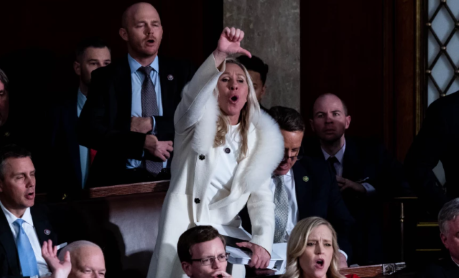Constitution might protect politicians’ rights to lie to you

By-Kaelan Deese – February 10, 2023

A long-standing North Carolina statute barring politicians from making campaign falsehoods violates free speech protections under the Constitution, an appeals court ruled this week.
The unanimous three-panel ruling in a case heard by the U.S. Court of Appeals for the 4th Circuit on Wednesday marked a significant win for North Carolina Attorney General Josh Stein (D), who was accused of breaking a 1931 law that bars “derogatory” reports on candidates for state office that the publisher knew to be incorrect or issued with “reckless disregard” for accuracy.
In the opinion written by Judge Toby J. Heytens, an appointee of President Joe Biden , he said that the state law is “likely unconstitutional for two reasons.”
FIRST AMENDMENT PROTECTS RIGHT TO LIVESTREAM POLICE OFFICERS, COURT RULES
It “appears to criminalize at least some truthful statements,” if derogatory and recklessly made, and “makes impermissible content-based distinctions” by singling out campaign-related speech.
The case stems from a planned grand jury investigation into whether Stein lied during his successful 2020 reelection campaign for office in an ad that blamed his Republican rival for a backlog of untested rape kits, according to court records.
The state board of elections determined there was too much uncertainty surrounding the facts of Stein’s campaign and the constitutionality of the law to recommend charges. Still, Wake County District Attorney Lorrin Freeman (D) proceeded with an investigation that was stalled by Stein asking federal courts to weigh in on the matter.
Although Wednesday’s decision in the appeals court is subject to a possible appeal, Freeman released a statement Thursday evening that her office closed its investigation into Stein in response to the 4th Circuit opinion, saying prosecutors had been blocked “from moving forward” with the case within the “prescribed statutory statute of limitations” of two years.
“As prosecutors, we respect the role of the court in determining the constitutionality of a duly enacted state law,” Freeman added.
The unanimous ruling on Wednesday highlighted several inconsistencies within the decades-old statute, noting the law did not bar “inflating a candidate’s credentials or promoting self-aggrandizing falsehoods, nor does it touch knowing falsehoods that undermine the perception of electoral integrity without referencing a particular candidate.”
For example, the judges found “under this statute, speakers may lie with impunity about businesspeople, celebrities, purely private citizens, or even government officials so long as the victim is not currently a ‘candidate in any primary or election.’ That is textbook content discrimination,” which the First Amendment disallows.
CLICK HERE TO READ MORE FROM THE WASHINGTON EXAMINER
The “act’s limitation to speech addressing only certain topics renders it facially unconstitutional,” according to the 15-page decision.
Through the appeals court’s decision, it vacated a district court’s order denying a preliminary injunction and sent the case back to the district court “for further proceedings consistent with this opinion.”















